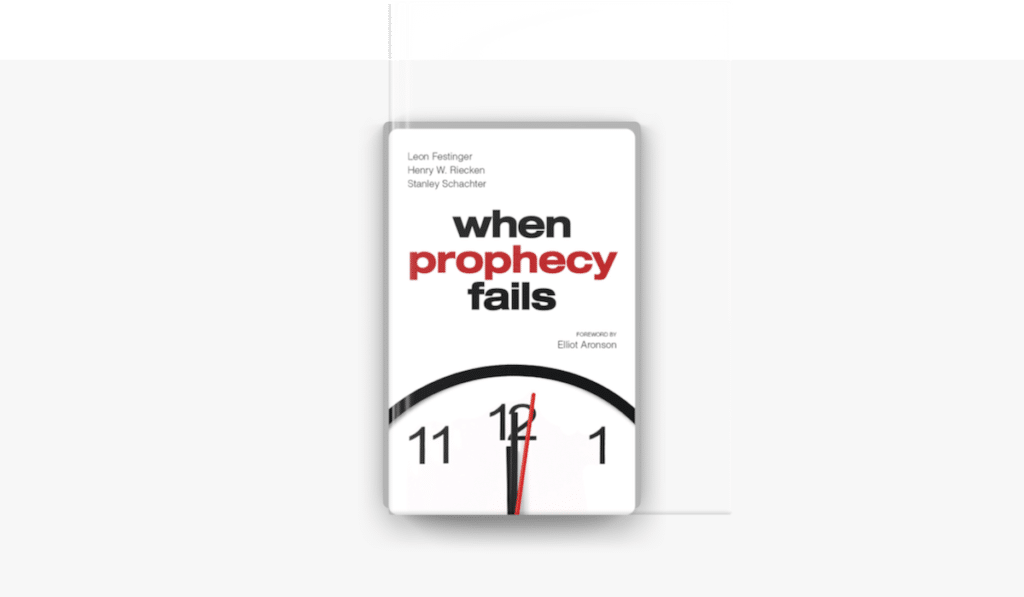I have always been intrigued by the possible learnings we can derive from the field of social psychology.
What makes our customers act in a certain way? What are their beliefs?
The work and studies from Zimbardo, Bandura and Milgram all show an interesting side to human psychology. I have also previously written about the impact of experiments on tase to show how Howard Moskowitz helped us track down the ‘perfect tomato sauce(s)’ here:
Another example was my blog on making better decisions (focused on the work by Daniel Kahneman here:
I guess it comes as no surprise that I have been very intrigued by the impact of people’s convictions lately. During a pandemic our belief system is getting tested. An interesting question when you ask yourself what happens to ‘true believers’ when their convictions are confronted by reality?
So allow me to introduce you to a fascinating study by Leon Festinger.
In 1954 Leon Festinger studied a group called the Seekers, lead by Dorothy Martin. The Seekers believed that the world will end on December 21st 1954 (spoiler alert: it did not). Festinger and his colleagues observed the impact of reality to the Seekers in 1954 and studied how they held on to their beliefs.
Festinger writes: “A man with a conviction is a hard man to change. Tell him you disagree and he turns away. Show him facts or figures and he questions your sources. Appeal to logic and he fails to see your point.
We have all experienced the futility of trying to change a strong conviction, especially if the convinced person has some investment in his belief. We are familiar with the variety of ingenious defenses with which people protect their convictions, managing to keep them unscathed through the most devastating attacks.
But man’s resourcefulness goes beyond simply protecting a belief. Suppose an individual believes something with his whole heart; suppose further that he has a commitment to this belief, that he has taken irrevocable actions because of it; finally, suppose that he is presented with evidence, unequivocal and undeniable evidence, that his belief is wrong: what will happen? The individual will frequently emerge, not only unshaken, but even more convinced of the truth of his beliefs than ever before. Indeed, he may even show a new fervor about convincing and converting other people to his view.”
Cognitive Dissonance is a very interesting field when it comes to Consumer Behaviour.
While buying decisions do not often require us to test our beliefs, research shows that cognitive dissonance is affecting our buying behaviour.
I can recommend further reading on Customer Happiness: The Role of Cognitive Dissonance and Customer Experience by Anil V. Pillai. A great summary on how Cognitive Dissonance can impact Customer Experience.
I would summarise my own guidance in the following way:
- Make sure your actions match with your messaging to avoid dissonance
- Be aware of your customers’ beliefs and how they link to your brand
- Good customer experience must have a link to meaning and context to avoid the opposite of the aspired result: unhappy customers
Last, but not least I want to add a 4th and more personal item:
4: Always test your own beliefs and make sure that they hold up to reality.
Last, but not least: have a read of Festinger’s When Prophecy Fails.

